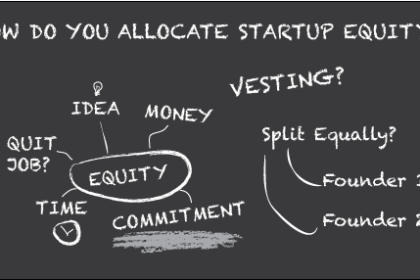
I’ve been pulled into an important question with a trouble degree of frequency lately; that is, “Why can’t I find, retain, and motivate my team?” Troubling, as not only does it reveal a problem entrepreneurs are having with talent but more so, because entrepreneurs even have to ask the question without knowing the answer. Why can’t you find, retain, and motivate my team? It depends on the type of venture you’ve started.
At the root of the question is something that first, founders and business owners must explore: What are you working to build?
A question socially difficult to expose, today’s entrepreneurs, one and all, want to say they are at the helm of a startup. To figure out how to motivate people though, you have to know whether or not you’re really a founder or a business owner. When you suggest to a “founder” that they are not running a startup but rather a business, you’re likely to get the evil eye with a subconscious, “how dare you imply I’m not a startup founder.” But it matters. Why? Semantics matter.
Since our goal herein is to explore why equity matters, let’s simplify the distinction between business owners and startup founders so that we might set the stage. Simply put, is this your business or a startup? Is this YOUR company or are you merely the CEO and founder? Are you building something in which everyone can get rich or are you endeavoring to employ people? It’s a subtle but important distinction when you are starting a company; and don’t misunderstand me, in deference to egos, we are all startup founders, but you have to know, you have to embrace whether or not you are building a company with distributed ownership or a business you own.
Article Highlights
Why Startups Give Equity
Ask yourself, in trying to hire, retain, and motivate employees:
What am I doing to convince them that their harder work will result in more than a profitable, successful company?
 You’re not asking about their “hard” work, people are paid for hard work. You have to explore what motivates individuals to contribute above and beyond. We’ve talked, here, about how your work culture is the very essence of what makes a venture successful, but culture must be nurtured into something practical and tangible. Do you bring in lunch for the team every Friday? Maybe you have a happy hour every Thursday or play foosball in the lobby. Those are manifestations of your culture and when asking what drives individuals to work harder, ask what aspect of your culture results in reward.
You’re not asking about their “hard” work, people are paid for hard work. You have to explore what motivates individuals to contribute above and beyond. We’ve talked, here, about how your work culture is the very essence of what makes a venture successful, but culture must be nurtured into something practical and tangible. Do you bring in lunch for the team every Friday? Maybe you have a happy hour every Thursday or play foosball in the lobby. Those are manifestations of your culture and when asking what drives individuals to work harder, ask what aspect of your culture results in reward.
People that want to work for startups are investing their invaluable time (worth far more than money); it’s more important to appreciate that they aren’t investing their time in the hope of making “the boss” wealthy and that someday the company will have enough revenues to pay them appropriately. They are investing, just as you are, and if they won’t benefit, exceptionally so, in the upside, you have no other way to motivate them – they aren’t there for a job and a paycheck — if they were, they’d get a more stable job.
This is why we distinguish between a business and a startup, between business owners and startup founders; when you own a business, people work for you and will only ever have as much as that job provides. When people work for a startup in which they have ownership, they work for themselves; and no one can motivate a person more than the person themselves.
Equity alone though isn’t enough, you have to communicate it’s value. Are you? Are you sharing your strategy with everyone? Is the team fully aware of your traction (do they KNOW the metrics and can they see them on demand)? Are they informed of and supporting your funding plans? If not, they have neither the opportunity to benefit from nor the awareness of the upside.
Without ownership and insight in your business, how would you perform? Working for a new business you are underpaid, working hard, and wherein the founders, alone, might get rich. No amount of free lunch and culture will motivate people that aren’t participating in your success.
“But I can’t give equity to my X!”
That’s the reaction I get when pointing out the need for equity. No, not your ex, your fill in the blank: consultants, admin, short order cooks, interns… the list goes on. Invariably, if you believe that someone on your team doesn’t deserve a piece of the success, they aren’t a part of your team. Everyone, in a startup, should be motivated with shares.
I got a job in college and was given 250 shares. What does a college kid know about shares and their value? What did I know of how much (how little) ownership that meant I had in the business? Nothing. Not much more than that the implication of ownership and that they’re worth something.
The owner sat down with me my first day and did the math on the shares… Here’s what they are worth today (but you can’t cash them in), look what happens when the company doubles in value, now here are our plans and why we need you. I was blown away. I was part of the team and not just a hire, I was an owner. Are your hourly staff not just as much a part of your brand and its success? You want exceptional quality, smiles, and passion do you not? You want motivated employees and trust me, paying $12 per hour doesn’t motivate many, no matter much you pat them on the back. Motivation is no different because they are hourly than CXO so why, AFTER you’ve determined that your company culture is indeed fun, rewarding, challenging, and exciting, why aren’t you enabling your team to truly be a part of the team?
I was given shares. But must you give them outright? Certainly not. I appreciate that employers are still concerned about turnover and the risk of rewarding people that don’t work out. Rest assured, common practice is to wait for a period of time before the employee reaches what’s called a “cliff” (the point at which a share of the equity becomes available to them). Subsequent the cliff, the shares you’ve granted will “vest” on a schedule with which you agree with the employee and can negotiate the terms (perhaps every month for the next 3 years, they get a little more until they are “fully vested”).
No matter how you slice it, your team should get a slice because at the end of day, if you are truly a startup founder, you are building a business that serves your passion for an idea. You don’t own that, everyone does. Don’t they? Here’s a good article from BusinessWeek to help you learn more.








As an owner of a very small startup with nearly no debt this is great.
Thanks for sharing.
My distinct pleasure JediMammoth. We figure this all out, and get through the toughest, together.